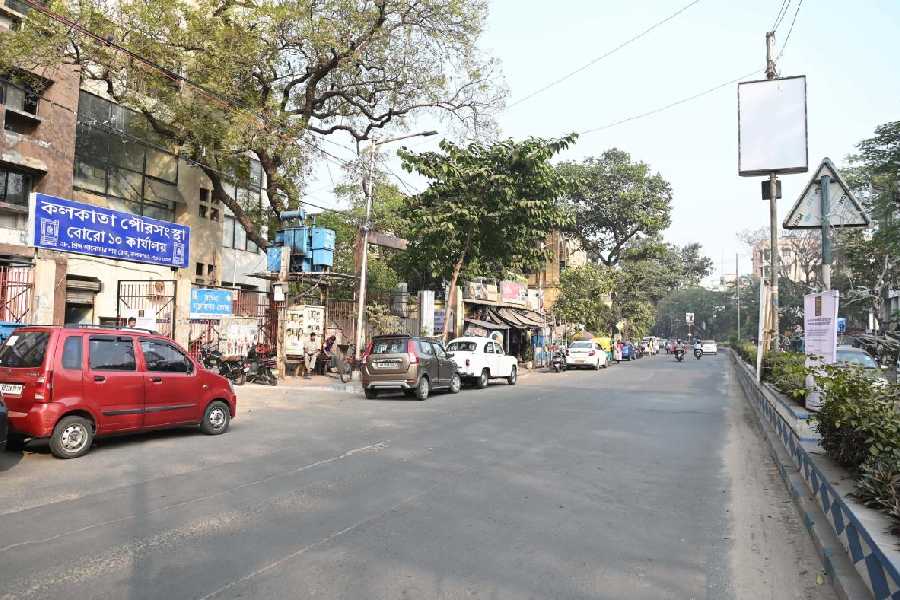A network of clogged sewer lines in Jadavpur and Dhakuria, which is often cited as one of the reasons for waterlogging in many neighbourhoods, will be desilted over the next year, a senior official of the Kolkata Municipal Corporation (KMC) said.
The sewer lines under a long stretch of Prince Anwar Shah Road and the Bypass-Anwar Shah Road connector will be part of the project.
Desilting will also be carried out in the drainage lines under a stretch of Raja SC Mullick Road (between gate No. 4 of Jadavpur University and the Jadavpur police station crossing); a stretch under Gariahat Road South (between Dhakuria and the Jadavpur police station crossing); and Prince Golam Mohammad Shah Road.
On Prince Anwar Shah Road and the connector, work will be undertaken between a spot near the Borough X office of the KMC and Gangulypukur.
“More than 7km of the sewer lines will be desilted. Pockets in Lake Gardens, Jodhpur Park and Dhakuria — which are in wards 89, 92, 93, 94, 95, 96 and 105 — will benefit once the conduits are free of silt,” said an official.
The state government is funding the Rs 10.67-crore project.
Temporary measures such as sucking the silt with machines were taken earlier but engineers had always felt the need for a thorough cleaning of the network.
“The work will take about a year to complete. We formally launched the project with a small programme on Friday evening. Work will start in seven to 10 days,” said the senior official.
As for Prince Anwar Shah Road and the connector, the sewer lines are located under the middle of the carriageway. Two points, about 100m apart, will be dug. Machines will be inserted through the points to remove the silt from the 100m stretch in between. Even workers can access the the drain for cleaning. The process will be repeated along the entire length where desilting will be carried out.
“We will need permission from traffic police to start work since the police have to barricade the points where we will work,” said the KMC official.
The sewers — also called box drains — vary in width and height, but the depth is almost constant at around 6ft. The width varies between 8ft and 9ft.
“On some stretches, the sewers are 70 per cent clogged. The clogged sewers do not pose any problem during dry seasons, but during the monsoon the silt delay the outflow of the rainwater, leading to waterlogging.”
The police and the KMC will conduct a joint inspection of the roads on Saturday to examine the problems that may crop up once work starts.
A KMC official said the desilting is part of a larger plan to tackle the problem of flooding in Kolkata.
There are predictions that the number of heavy rainfall days in the city will increase because of climate change. “We will also build a drainage pumping station so the water going through the sewer network is drained out faster into canals,” the official said.
